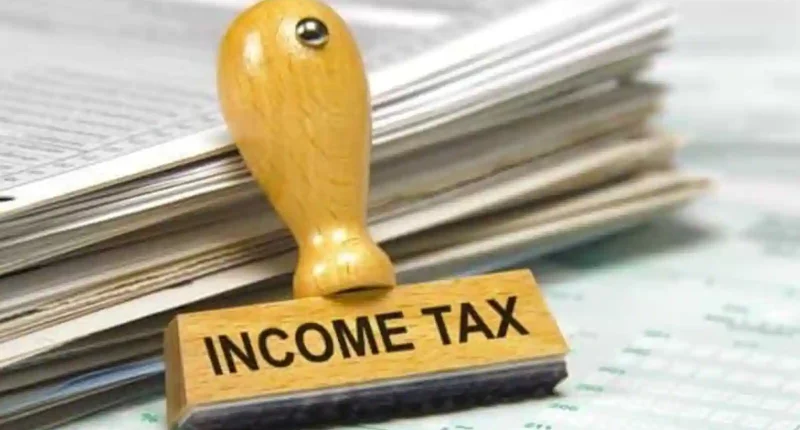Senior citizens can enjoy certain tax benefits besides the tax rules that are usually available even to non-senior citizens. The benefits are available in the form of higher income tax exemptions or deductions or relief in filing tax returns if certain conditions are satisfied. Let’s look at the income tax benefits available to senior citizens.
Higher basic exemption limit
The tax rates are the same for senior citizens and non-senior citizens. However, there is a difference in the basic exemption limit available to non-senior citizens, senior citizens and super-senior citizens. The senior citizens and super senior citizens can enjoy the basic exemption limit of income of Rs 3 lakh and Rs 5 lakh, respectively. However, for non-senior citizens, this limit is Rs 2.5 lakh only.
| Income Slab | Tax Rates | ||
| Individuals
below 60 years age |
Individuals
between 60 to 79 years age |
Individuals
with 80 years or above age |
|
| Below Rs 2.5 lakh | Below Rs 3 lakh | Below Rs 5 lakh | Nil |
| Rs 2.5 lakh to Rs 5 lakh | Rs 3 lakh to Rs 5 lakh | – | 5% |
| Rs 5 lakh to Rs 10 lakh | Rs 5 lakh to Rs 10 lakh | Rs 5 lakh to Rs 10 lakh | 20% |
| Above Rs 10 lakh | Above Rs 10 lakh | Above Rs 10 lakh | 30% |
However, this is not the case if they are opting for the new tax regime. The basic exemption limit is Rs 2.5 lakh for all the age groups.
The tax slab rates in the new tax regime are as follows:
| Income Slab | Tax Rates |
| All individuals | |
| Below Rs 2.5 lakh | Nil |
| Rs 2.5 lakh to Rs 5 lakh | 5% |
| Rs 5 lakh to Rs 7.5 lakh | 10% |
| Rs 7.5 lakh to Rs 10 lakh | 15% |
| Rs 10 lakh to Rs 12.5 lakh | 20% |
| Rs 12.5 lakh to Rs 15 lakh | 25% |
| Rs 15 lakh above | 30% |
Non-filing of income tax returns
Individuals aged 75 years or above are exempted from filing ITR. The exemption is available to those individuals who have pension income and interest from deposits with the same bank where the pension is received. The individual should not have any other income source. However, the tax must be deducted by the bank paying such income. The senior citizen should submit Form No. 12BBA to the bank declaring the amount of deductions under Chapter VI A and the rebate available under Section 87A of the Income Tax Act.
Non-deduction of TDS on interest
Senior citizens can submit a declaration in Form No. 15H to the tax deductors for deducting tax (TDS) on income from post office deposits, public provident funds, provident fund withdrawals, LIC maturity proceeds, etc. This helps the senior citizens with nil tax liability to avoid the hassles of filing the income tax return for claiming refunds of tax deducted.
This declaration in Form No. 15H can be submitted by senior citizens even if the income earned is more than the basic tax exemption limit.
Moreover, the limit of deducting tax on interest (Section 194A) on deposits is Rs 50,000 for senior citizens. For non-senior citizens, the limit is Rs 10,000.
Interest deduction available up to Rs 50,000
Section 80TTB of the Income Tax Act allow senior citizens with age 60 years and above to claim a tax deduction of up to Rs 50,000 for interest earned on savings and fixed deposits from banks and post office. The amount earned above Rs 50,000 will be taxed according to the slab rates applicable to senior citizens. In comparison, the deduction available under Section 80TTA to non-senior citizens is only up to Rs 10,000, and interest from term or fixed deposits is not eligible for deduction.
Deduction under Section 80D for health insurance premiums and medical expenses
Section 80D allows non-senior citizens a tax deduction of up to Rs 25,000 on medical insurance premium payments. However, for senior citizens, the deduction amount is Rs 50,000. Further, an individual can claim a deduction for expenses incurred on self or family (being senior citizens) for medical treatment under section 80D.
Higher deduction for specified illness
Section 80DDB allows tax deduction to the taxpayers for expenses incurred on medical treatment of specified diseases. This section covers medical treatment for major illnesses and diseases like cancer, neurological diseases, etc. The allowed deduction is up to Rs 1,00,000 of the medical expenses incurred.
Tax exemption on the amount received under the reverse mortgage scheme
A reverse mortgage scheme is where senior citizens receive regular payments by mortgaging their home for life. The ownership and possession remain with the senior citizen. On the death of the borrower, the lender will sell the property, and the loan amount with interest will get repaid from the sale proceeds of the property. The balance amount of the sale proceeds gets passed on to the legal heirs. Under this scheme, the amount paid in instalments to senior citizens during their life is entirely exempt from income tax.
No advance tax liability
If the estimated tax liability of the financial year is more than Rs 10,000, the individuals are required to pay advance tax. Senior citizens without business income are not liable to pay advance tax. They have to pay self-assessment tax on their taxable income.
For any clarifications/feedback on the topic, please contact the writer at namita.shah@clear.in

I’m a chartered accountant and a functional CA writer by profession. Reading and travelling in free time enhances my creativity in work. I enjoy exploring my creative side, and so I keep myself engaged in learning new skills.





